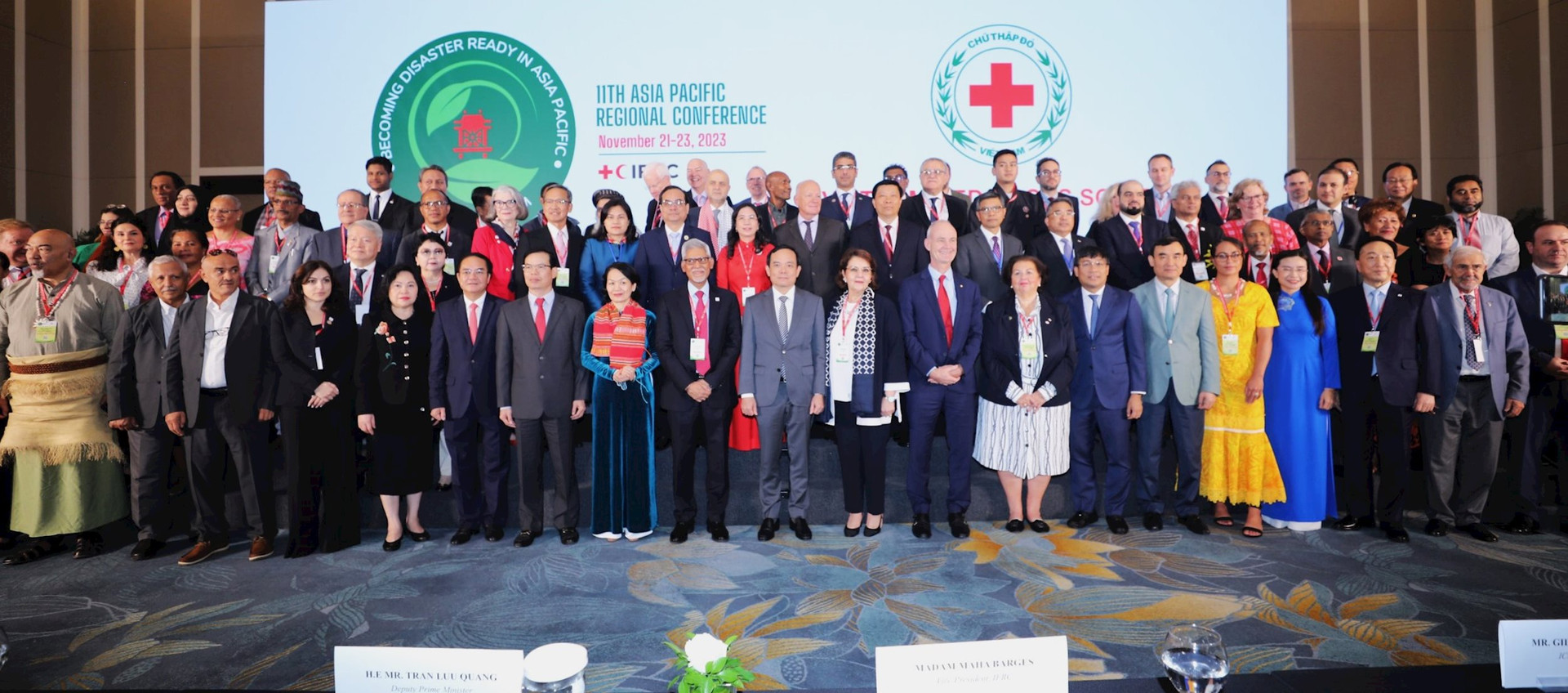
Representing the Ministry of Natural Resources and Environment , Deputy Minister Le Cong Thanh presented on Vietnam's efforts in enhancing resilience and adaptation to climate change.
The conference was attended by representatives from the International Federation of Red Cross and Red Crescent Societies (IFRC), the International Committee of the Red Cross, and National Societies in the Asia- Pacific , Middle East and North Africa regions. The parties discussed ways to prepare for complex disasters under the impact of climate change.
Speaking at the conference, Deputy Prime Minister Tran Luu Quang affirmed that Vietnam always upholds a multilateral approach and a humanistic spirit, towards the people in the community, proposing many comprehensive solutions to global issues, promoting cooperation between the United Nations and ASEAN in maintaining regional peace and security.
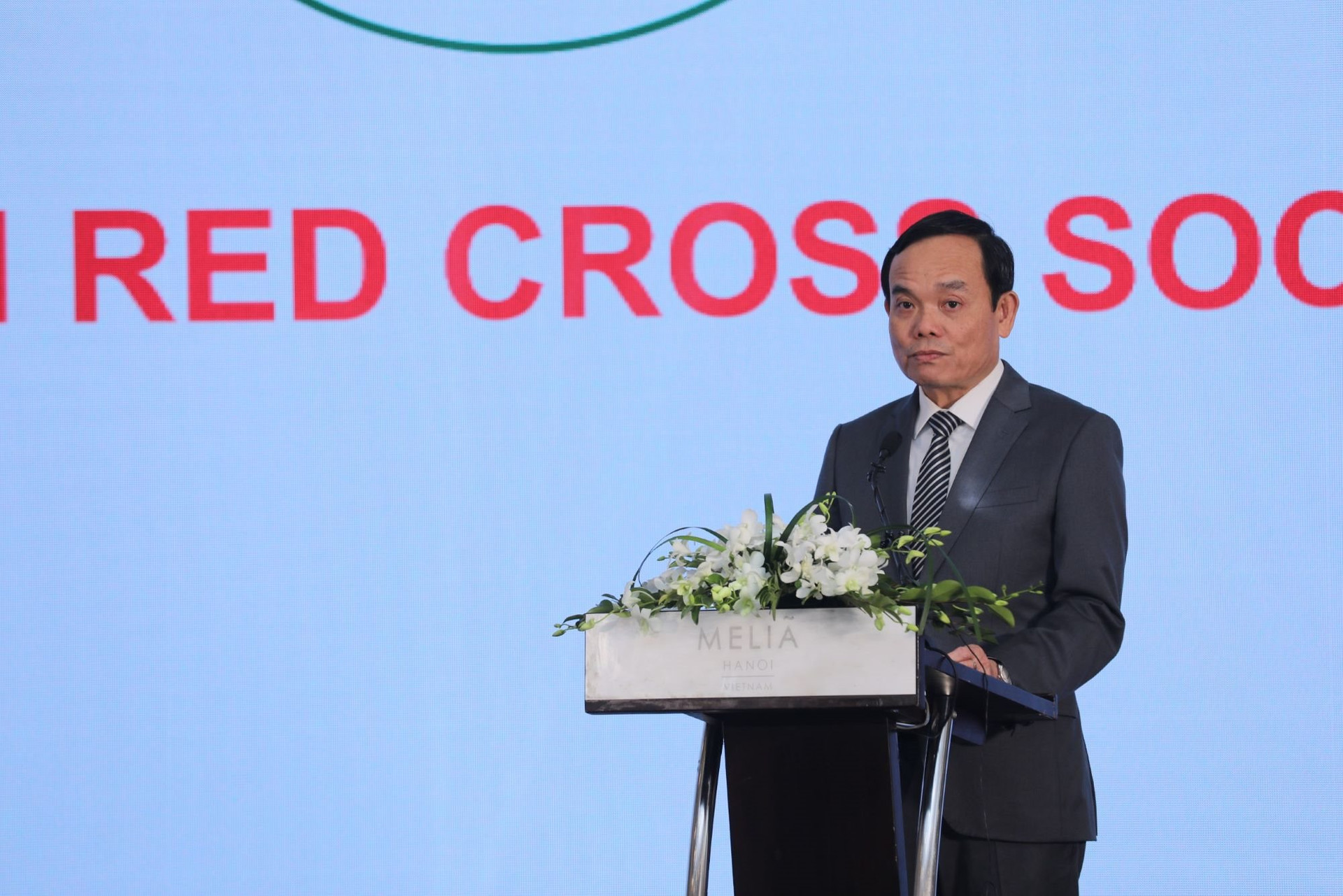
Currently, climate change is leading to an increase in extreme weather events. The choice of the theme of the Conference “Asia-Pacific: Disaster Preparedness” and the thematic discussions at the Conference show the region’s high proactiveness and readiness in all situations before disasters and emphasize the new direction in disaster management, shifting from passive response to proactive prevention and preparation to minimize damage caused by disasters; at the same time, it shows the movement’s concern for the challenges and opportunities in humanitarian activities; the trend of digital transformation, green transformation; the Red Cross Volunteers and Youth, taking youth as a factor for development, inspiring youth to promote creativity, and disaster preparedness.
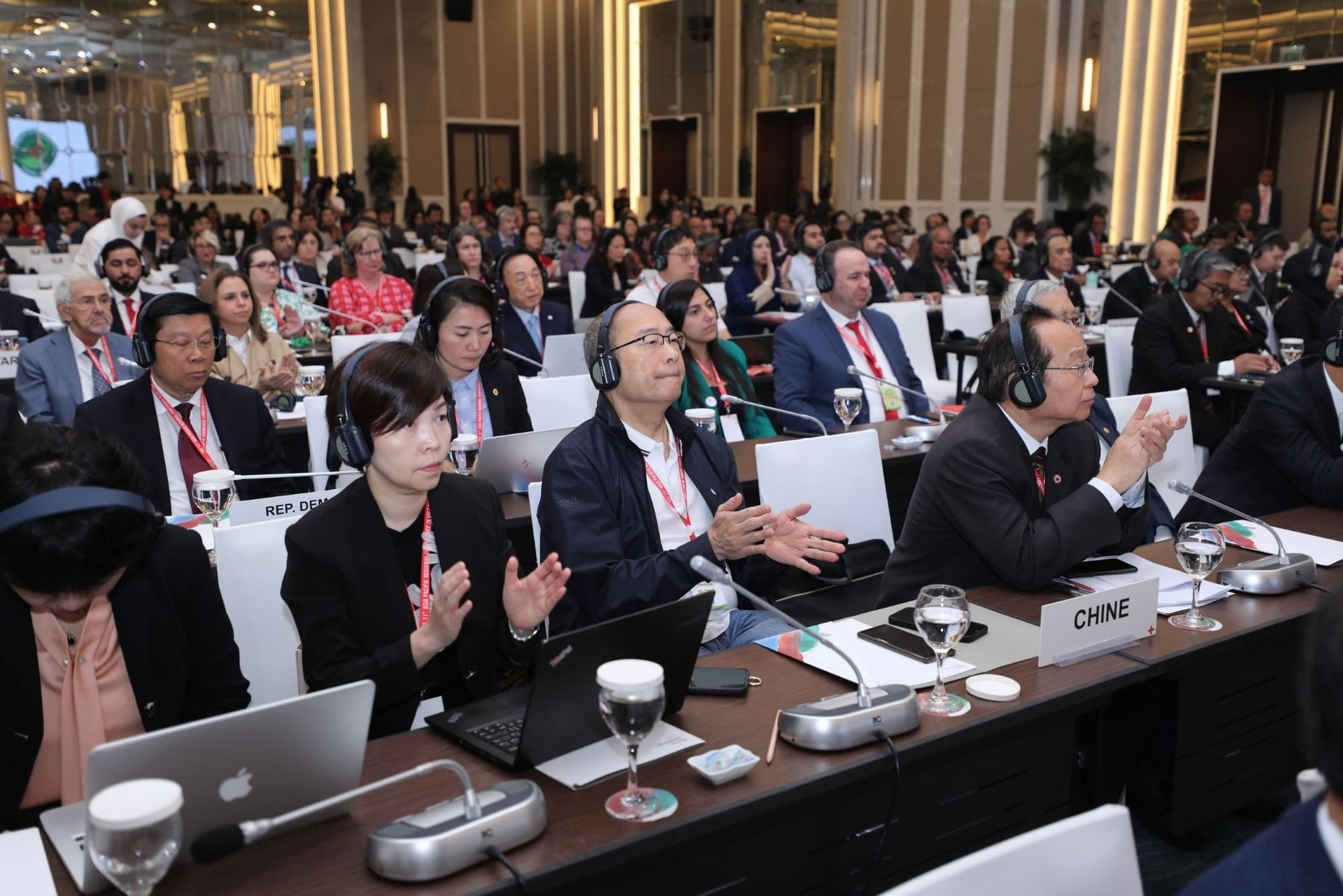
“Practice shows that in difficult times and disasters, we must be more united, cooperate equally, and be more closely united to overcome difficulties and challenges together. International cooperation and solidarity, both bilaterally and multilaterally, are decisive in enhancing humanitarian capacity and in preventing and responding to disasters,” the Deputy Prime Minister emphasized, expressing his hope that through the Conference, the cooperative relationship between the parties will be increasingly strengthened.
Sharing about the main theme of this year's Conference, Ms. Bui Thi Hoa - President of the Vietnam Red Cross Society said: Asia - Pacific is a region that often suffers many risks and damages from climate change, especially natural disasters compared to other continents. In particular, Vietnam is located at the center of the geographical area that often suffers the effects of natural disasters and is in the list of 10 countries with the most serious damage.
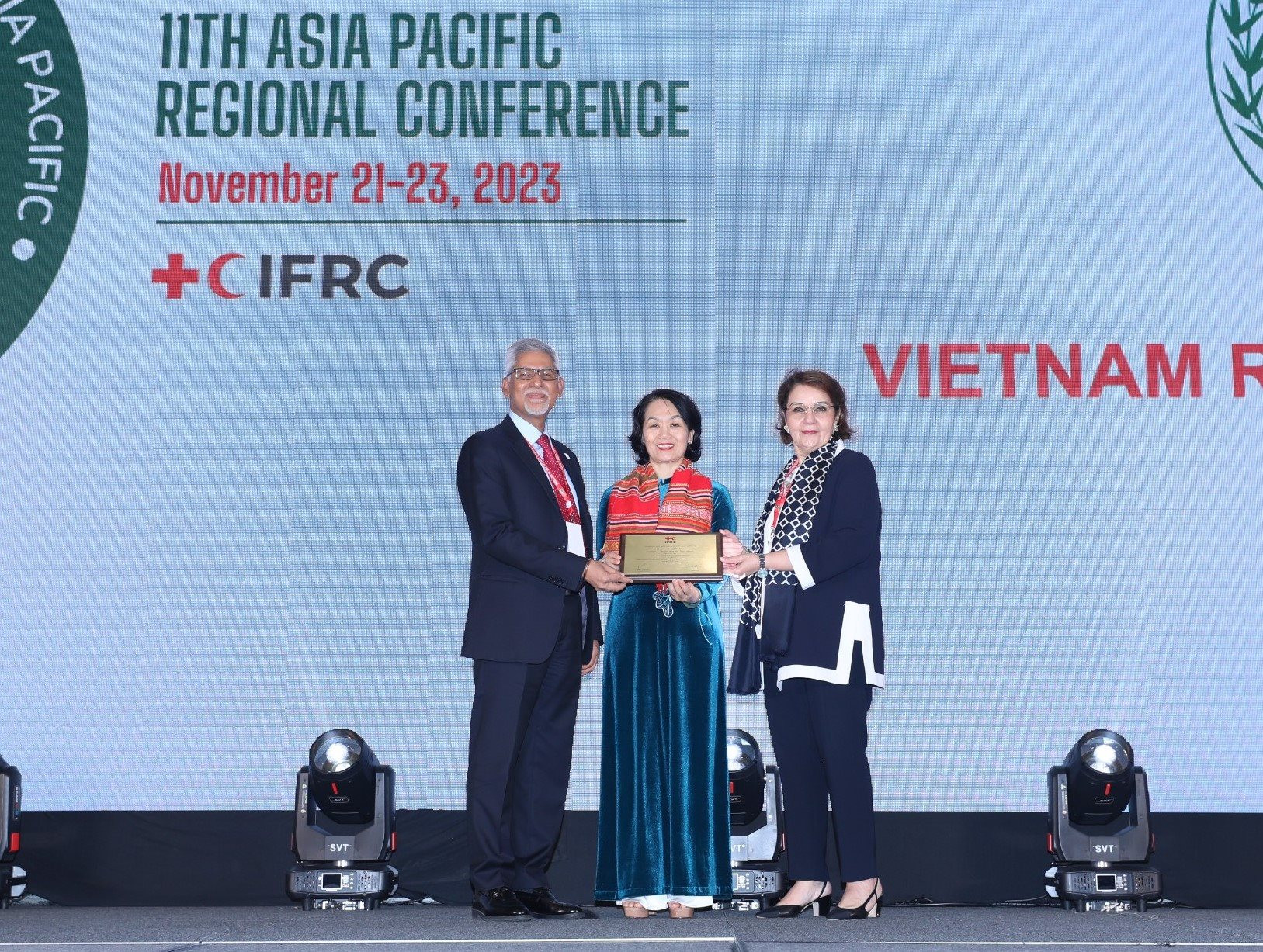
The 11th Conference marks a milestone in the efforts of national societies to address the humanitarian challenges facing the Asia-Pacific region. Given the complexity, increase and severity of crises and disasters caused by natural disasters, epidemics and conflicts, the need for cooperation, sharing and coordinated action to form the strength of a unified global movement is more important, urgent and vital than ever.
Regarding the impacts of natural disasters and climate change in Vietnam, Deputy Minister of Natural Resources and Environment Le Cong Thanh said that the sectors/fields with high risks due to climate change are agriculture and food security, natural ecosystems, biodiversity, water resources, public health, housing and technical infrastructure. These are sectors/fields with high exposure and sensitivity to natural disasters and extreme climate events.
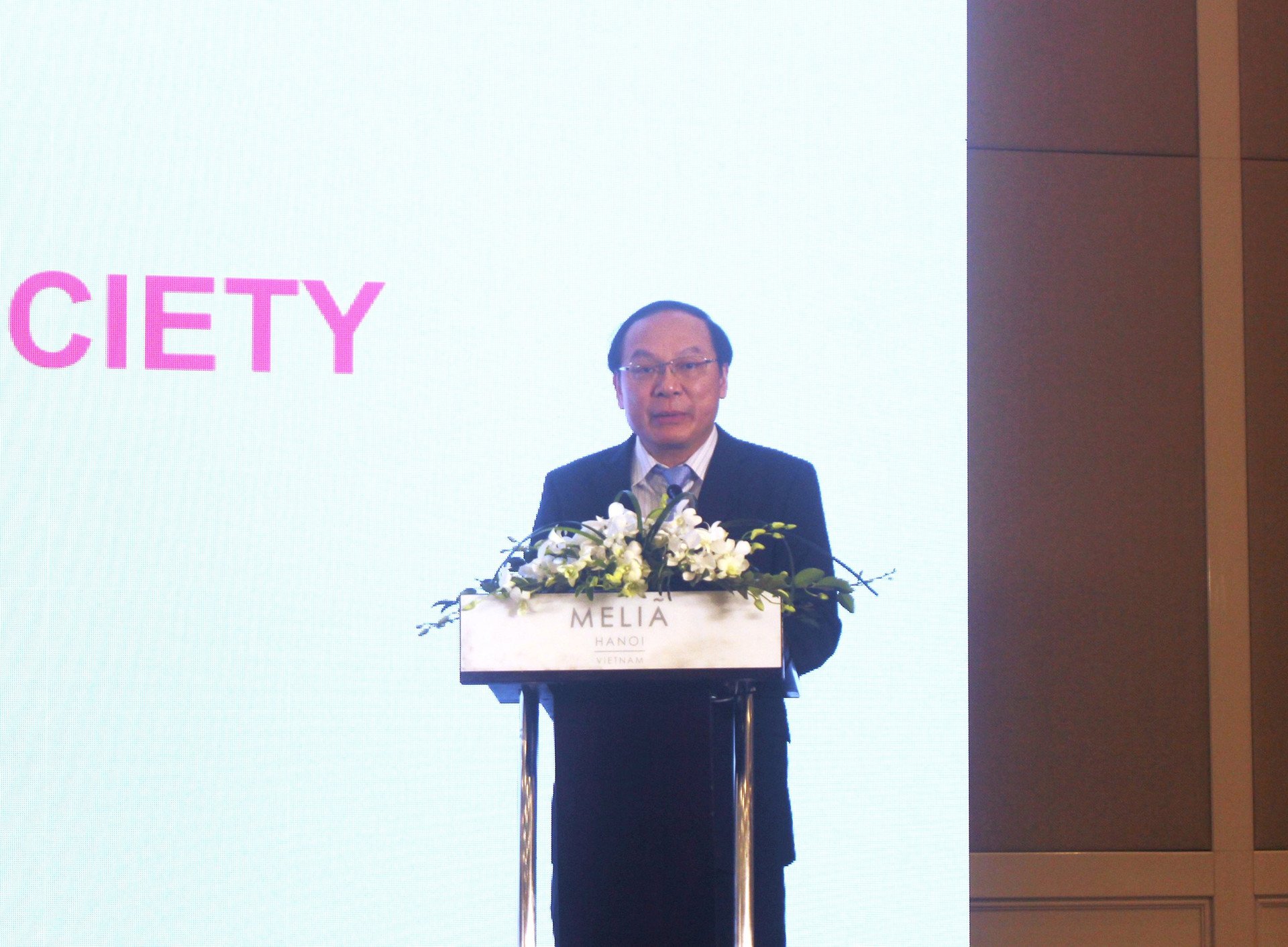
In recent times, the Party, National Assembly and Government of Vietnam have issued many important guidelines, policies and actions to enhance resilience and adaptation to climate change. Climate change response activities in Vietnam have been gradually implemented synchronously. These efforts have not only been highly appreciated by the international community but have also established many effective relationships and cooperation. However, implementation still faces many difficulties because this is an inter-regional, inter-sectoral issue and climate change is evolving in a complex and unpredictable manner.
To proactively and effectively enhance resilience and adaptation to climate change, Deputy Minister Le Cong Thanh said that the cooperation of all levels, sectors, socio-political organizations and international organizations, including the International Red Cross and Red Crescent Societies and the International Committee of the Red Cross, is essential.
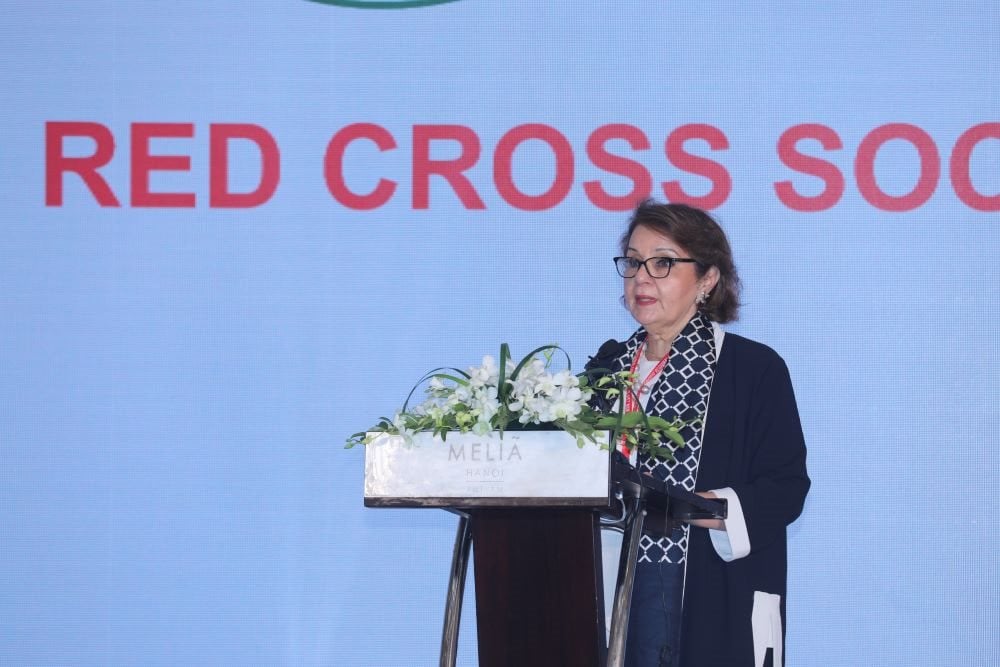
Appreciating Vietnam’s efforts, Ms. Maha Barjas Hamoud Al Barjas, Vice President of the International Federation of Red Cross and Red Crescent Societies, welcomed the fact that the Vietnam Red Cross Society is the first National Society in the world to have an Early Action Mechanism to respond to heat waves and heatwaves; and that the Law on the Operations of the Vietnam Red Cross is currently under review and revision. The Federation encouraged the acceleration of financial processes to transfer budgets from the Federation to the Vietnam Red Cross Society, to ensure that communities affected by natural disasters or crises receive the humanitarian assistance they need as soon as possible.
“This conference focuses on bringing together the National Societies of the Asia Pacific and the Middle East to discuss how to prepare for complex disasters. As we see increasing humanitarian needs, we need to work differently in the way we deliver humanitarian assistance, focusing on better forecasting of disasters and faster assistance to people, thereby enabling them to prepare and respond to avoid loss of life and minimize damage,” the Vice President emphasized.
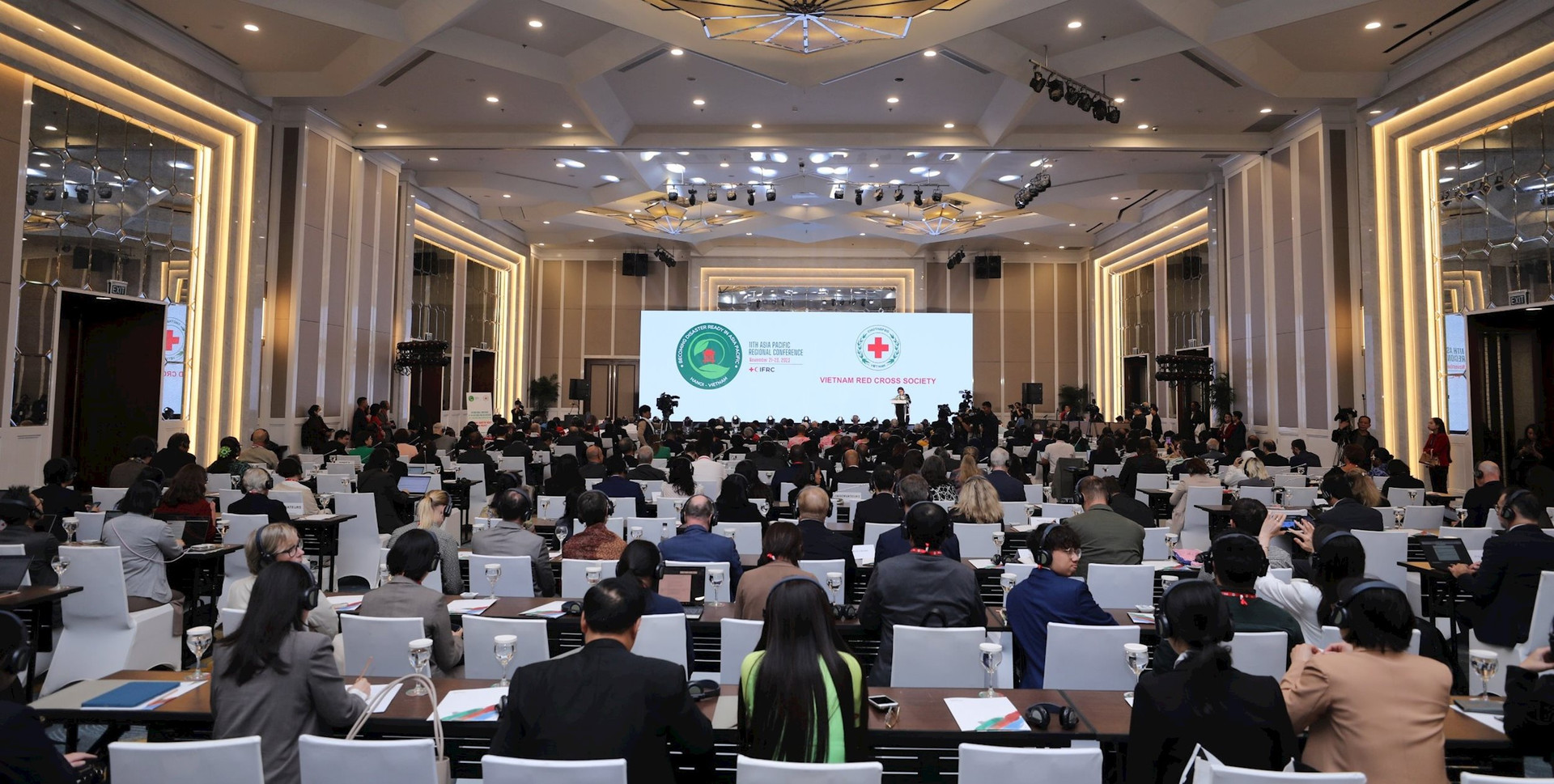
During the 3-day conference (November 21-23), representatives of the Red Cross and Red Crescent Societies from more than 60 countries shared experiences in responding to and overcoming the consequences of natural disasters; identified challenges, opportunities and found solutions to improve protection for vulnerable populations.
Delegates affirmed that close cooperation between organizations and countries is very important. In particular, investing in disaster prevention and early warning will cost much less than overcoming the consequences of natural disasters. The conference focused on building capacity for national associations to be ready to respond to disasters, enhancing good coordination and mutual support. At the same time, it proposed ideas and initiatives to promote humanitarian cooperation in the Asia-Pacific region.
Source


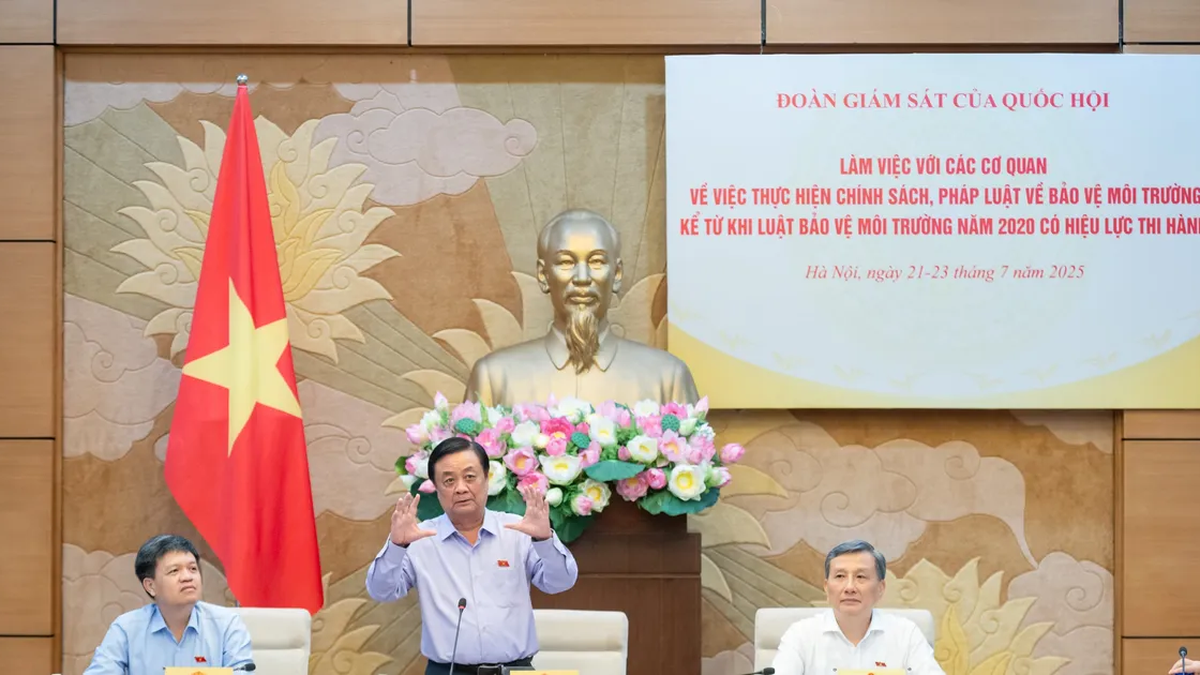
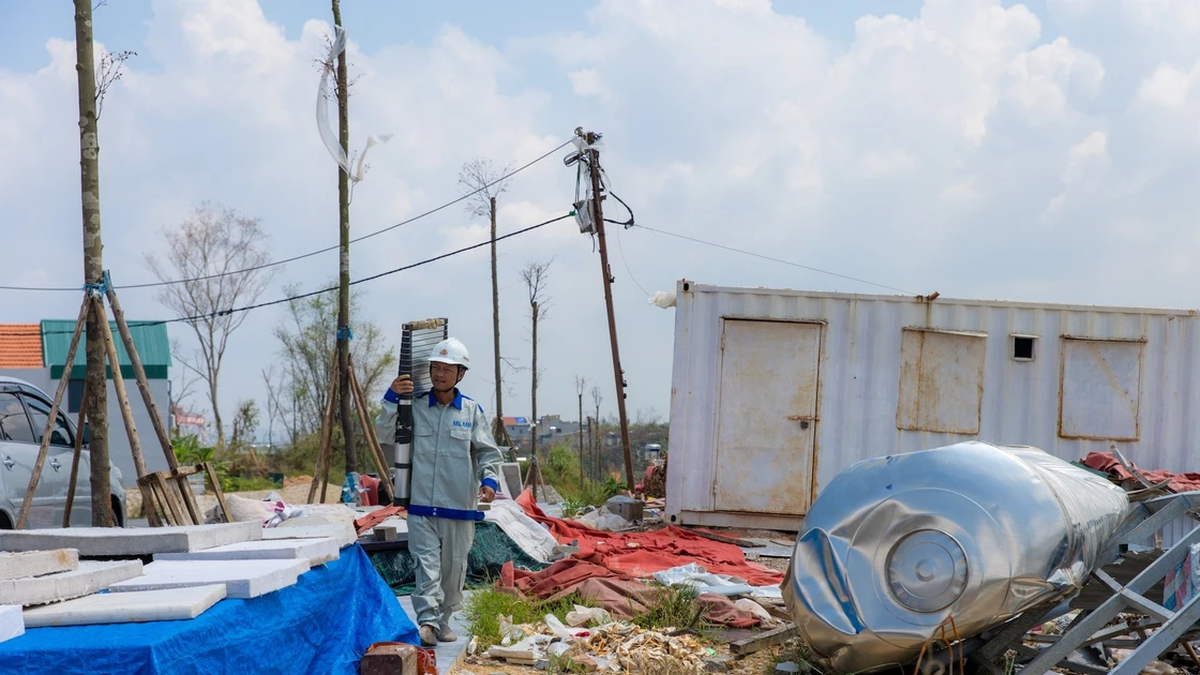
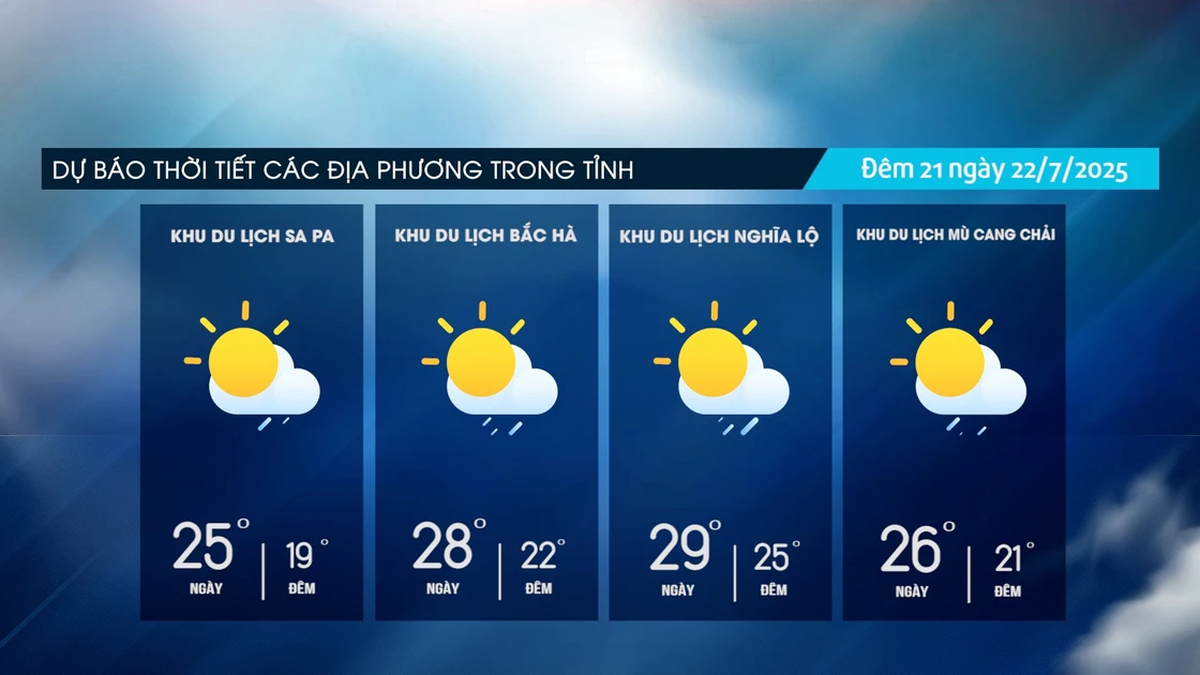
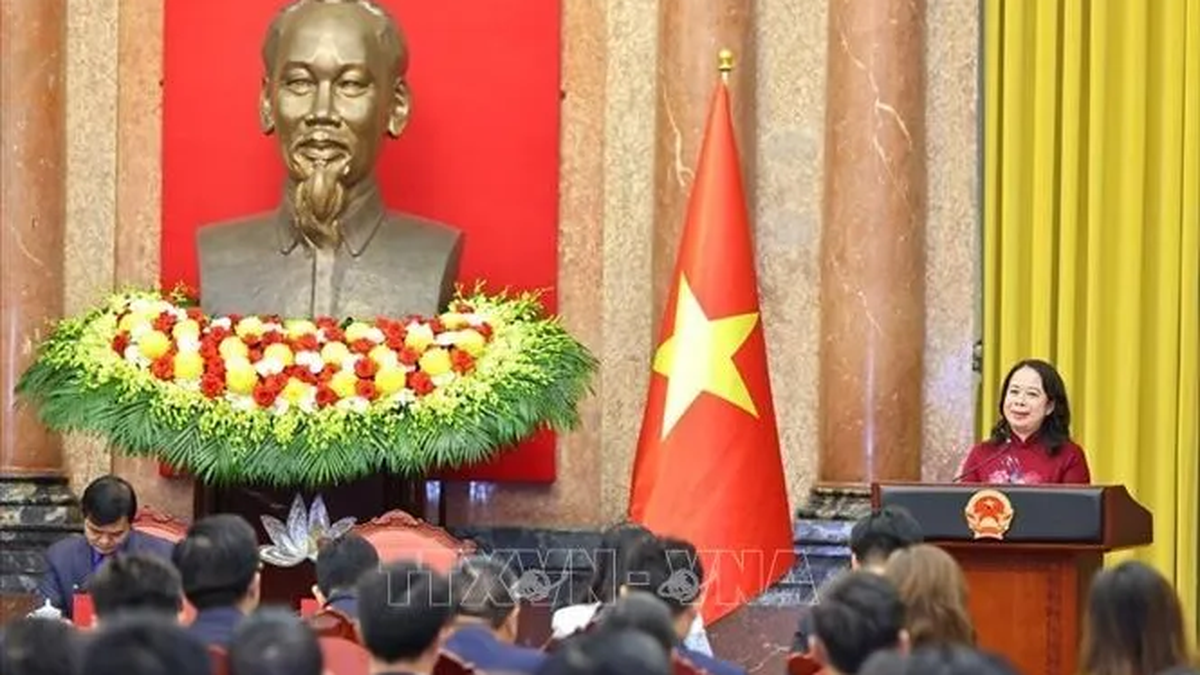
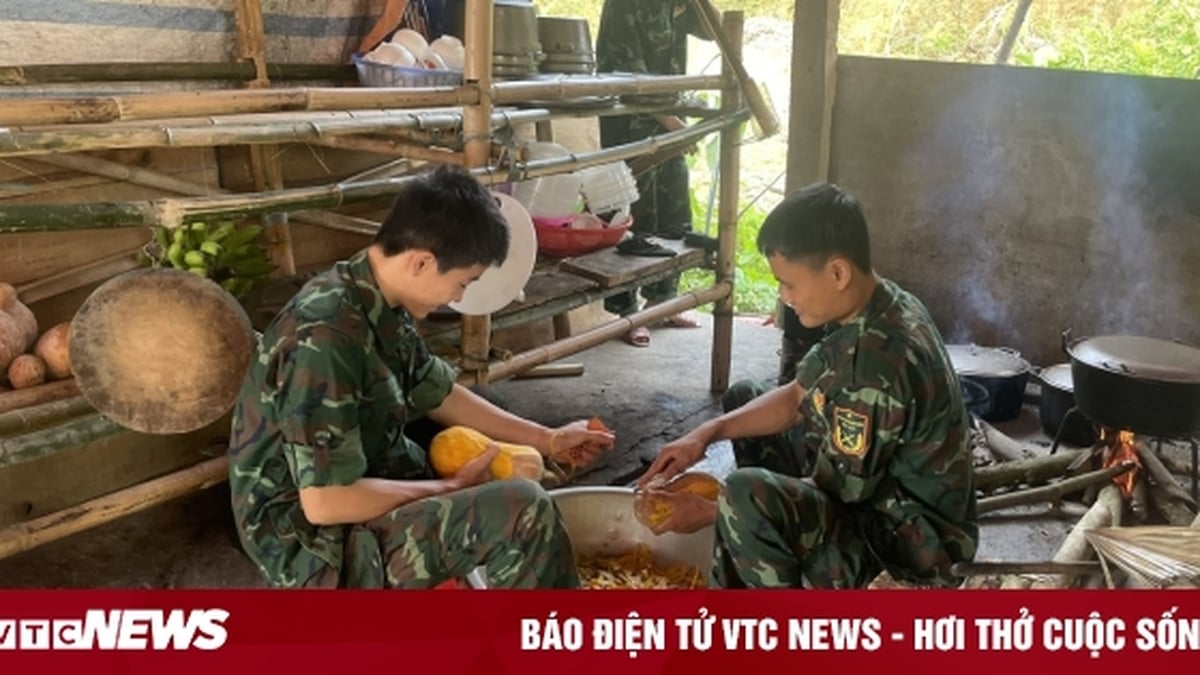


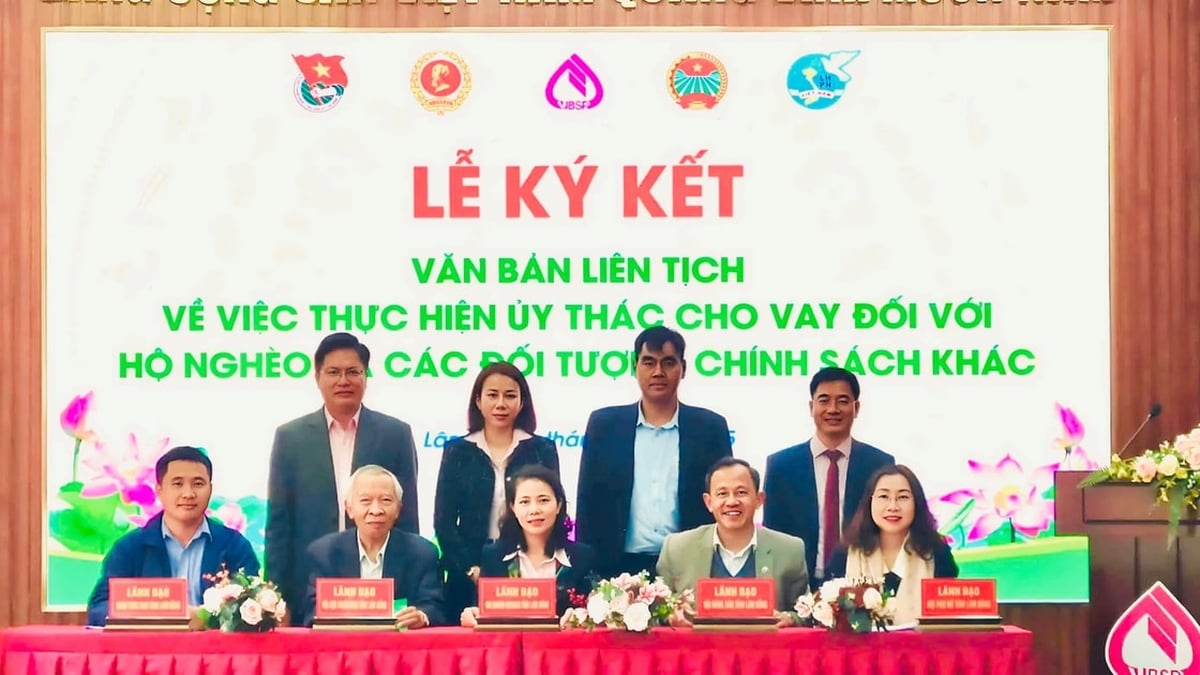












![[Photo] National Assembly Chairman Tran Thanh Man visits Vietnamese Heroic Mother Ta Thi Tran](https://vphoto.vietnam.vn/thumb/1200x675/vietnam/resource/IMAGE/2025/7/20/765c0bd057dd44ad83ab89fe0255b783)








































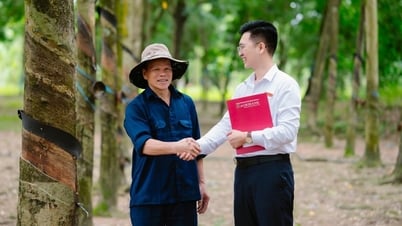















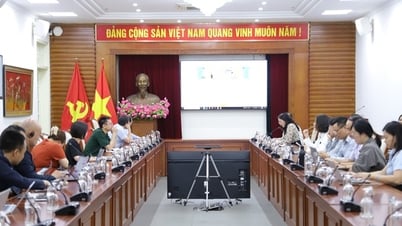





















Comment (0)